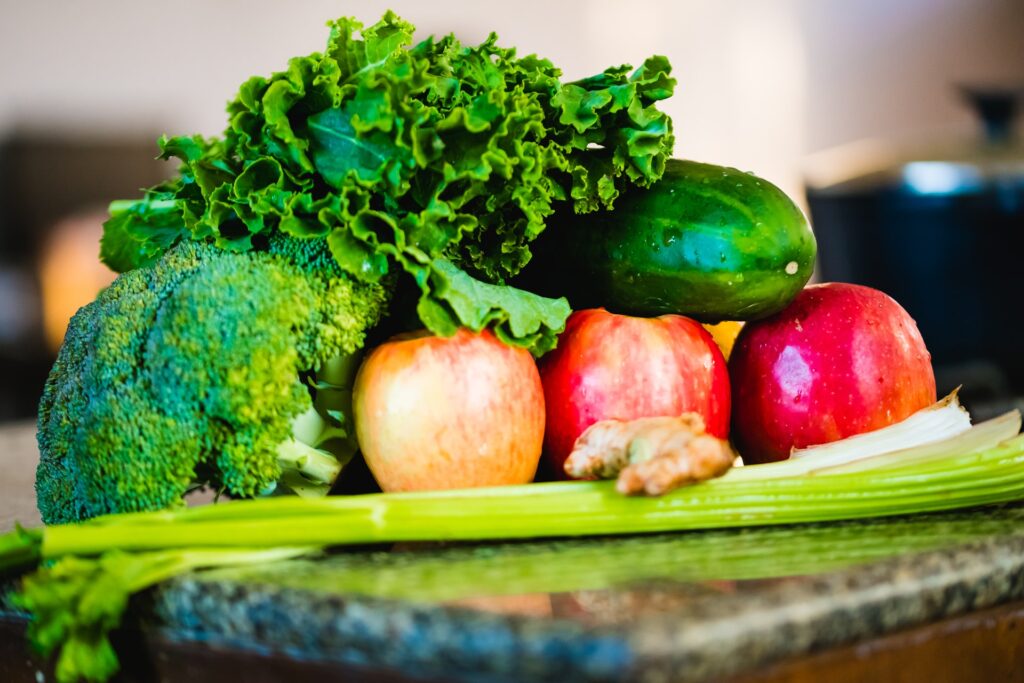
The importance of eating a healthy, balanced diet cannot be overemphasized. Choosing whole foods over processed foods is one of the wisest decisions you can ever make in your life. Stop eating junk food and drinking sugar heavy drinks.
Consuming empty carbs can be useless to your diet as well as damaging your overall physical and mental wellbeing. However, even if you eat whole foods every day, you still have to make sure you are getting all the essential nutrients you need.
We’ve listed eleven essential vitamins and minerals that we men need to make sure that we get in our daily diet or through supplementation if required. We have outlined the benefits of each and listed some of the food sources that can provide you with them.
Eat right. See your doctor and get a blood test to make sure that you are within accepted guidelines.
11 Essential Vitamins And Minerals For Men:
1. Vitamin D
This vitamin is crucial for the production of testosterone and helps maintain strong bones. It is important for moods, improved brain health, and in regulating blood pressure and cholesterol levels. Vitamin D also helps to reduce inflammation.
Men who lack vitamin D are up to 80 percent more at risk of suffering from a stroke or heart attack. They are also more likely to suffer from low libido, low metabolism, fatigue and sleep apnea.
Men up to 50 years of age need to have 1,000 IU of vitamin D each day. It is easy to get this amount if you get enough sun exposure each day. However, if you don’t, make sure you obtain this nutrient from dietary sources.
Add eggs, salmon, beef liver, sardines and mushrooms to your diet as they are all good sources of vitamin D.
2. Vitamin B12
Vitamin B12 is important for healthy nerve function, and for men, it plays a critical role in the development and production of sperm, and sperm motility. Men who have a vitamin B12 deficiency are more likely to suffer from numbness, poor reflexes, tingling, fatigue, and confusion. Not having enough of this vitamin may also lead to an increase in homocysteine levels, which also increases the risk of heart attack. Furthermore, a deficiency of this vitamin may also trigger the onset of depression and a loss of libido.
Beef liver, sardines, cottage cheese, eggs, and wild-caught salmon are a few dietary sources of vitamin B12.
3. Vitamin K
Vitamin K is known for its role in blood clotting and bone building. Research shows that vitamin K is beneficial in lowering the mortality rate through cardiovascular disease or stroke. Vitamin K has also been found to have a unique ability to trigger the activation of proteins that help reduce the risk of cancer, atherosclerosis, diabetes, and osteoporosis.
Kale, spring onions, brussel sprouts, eggs, and cabbage are some of the most sources of vitamin K.
4. Magnesium
Every organ of the human body needs magnesium for it to function at its best. Although many know of its importance for bone and heart health, the benefits of magnesium are so much more. Magnesium plays a role in more than 300 biochemical reactions inside the body. It supports the immune system, muscle and nerve functions, and brain health.
It is also important in the process of moving electrolytes into and out of each cell in the body. Muscle spasms, fatigue, poor memory, loss of appetite and dizziness are some of the signs and symptoms of a magnesium deficiency.
Adult males are required to take 400 to 420 milligrams of magnesium each day. This is made possible by eating foods high in magnesium content such as almonds, avocados, brown rice, cashews, quinoa, and peanuts.
5. Omega-3 Fatty Acids
The brain needs omega-3 fatty acids to function properly as they serve as the structural material for the brain’s nerve cells. Omega-3s are classified as nootropics, which serve to improve cognition and memory.
However, the body cannot produce these essential fats on its own. Thus, the need to obtain them from dietary sources and supplements is necessary.
Our immune system, joints, and heart will also benefit from omega-3 fatty acids. They help keep triglyceride levels within healthy levels; they make sure that our arteries don’t build up plaque and help ensure our heart is well cared for.
Salmon fish oil, cod liver oil, walnuts, chia seeds, Atlantic mackerel, and egg yolks are good sources of omega-3 fatty acids. If you don’t get enough in your diet, there are plenty of fish oil supplements you can use.
6. Folate
Folate, also known as folic acid and folacin is needed for the body to use protein, make DNA, and form our healthy red blood cells. Folate is a part of the vitamin B group of vitamins.
Sources of folate include: Beans, nuts, liver, and spinach.
7. Calcium
We all know that calcium is good for our bones. But did you know that it also helps with supporting healthy muscles and nerves as well? It is important that men of any age get enough calcium in our diet, first to help develop strong, dense bones when we are younger and then of course to maintain bone strength as we get older.
Sources of calcium include milk and other dairy foods, sardines with soft, edible bones; dark leafy green vegetables. You can eat and drink calcium-fortified cereals and juices but you should be sure to read the label and of course watch for too much sugar.
8. Vitamin C
“Vitamin C is one of the safest and most effective nutrients, experts say. Though it may not be the cure for the common cold, the benefits of vitamin C may include protection against immune system deficiencies, cardiovascular disease, prenatal health problems, eye disease, and even skin wrinkling.”
WebMD.com – See The End of Article For The Link
And especially for us men, eating fruits and vegetables rich in vitamin C is linked to having a lower risk for BPH (benign prostatic hyperplasia) BPH can lead to us older guys having problems with urination.
Sources include: Oranges, grapefruit, strawberries, green and red peppers, kiwifruit, potatoes, tomatoes, and broccoli.
9. Potassium
According to Healthline.com:
“Potassium is one of the most important minerals in the body. It helps regulate fluid balance, muscle contractions and nerve signals. What’s more, a high-potassium diet may help reduce blood pressure and water retention, protect against stroke and prevent osteoporosis and kidney stones.”
Helathline.com – See The End of Article For The Link
Sources include: Fruits, like bananas, oranges, kiwi, pineapples and apricots. Vegetables, such as potatoes, carrots and leafy greens. whole grains, nuts, beans and lean meat.
10. Vitamin A
Vitamin A is a fat soluble compound and is very important for many critical processes in our body. Vitamin A is used by the body to maintain our vision, ensure the normal functioning of our organs and immune system, support bone health and may reduce the risk for some cancers.
Sources of vitamin A include: tomato products, fish and fish oils, liver, eggs, dark fruits and orange and yellow vegetables like carrots.
11. Zinc
Zinc also supports quite a few functions of our body including our immune system. Zinc allows for the creation of proteins and DNA, contributes to the healing of wounds and it also has antioxidant properties.
Sources include: Fish and seafood, nuts and meats as well as dairy products and whole-grain cereals.
Conclusion
Eat right. Eat a balanced diet of good and healthy whole foods. Eat way less junk foods, processed foods and fast foods. In order for our bodies to function well as the fine-tuned machine it ought to be, we need to feed it with the right foods that give us the right vitamins and minerals. You can do it.
See you doctor for a blood test to see if you are with any vitamin or mineral deficiencies and if any supplements may be needed.
Be A Man – Do The Right Thing. It’s Your Life. It’s Your Choice. Take Care Of Yourself. See Your Doctor. Get A Blood Test. Eat Right.
BAM!!! Be A Man! Do The Right Thing.
Be the DtRTy Guy!
Further Reading
https://www.webmd.com/diet/features/the-benefits-of-vitamin-c#1
https://www.healthgrades.com/right-care/mens-health/8-essential-vitamins-and-minerals-for-men
https://www.healthline.com/health/potassium#sources
